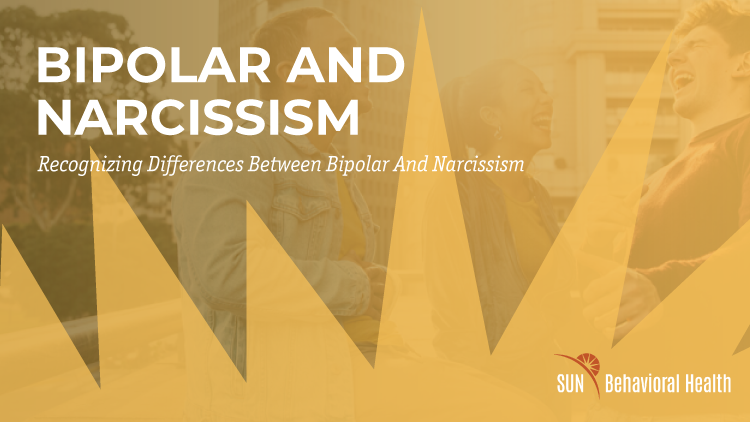Services
- Home
- Mental Health Services
- Who We Treat
- How We Treat
- Patients & Visitors
- About
close

“All you think about is yourself!” were the last words he heard from his wife as she stormed out the door of the house they had built for the two of them. It was Dylan’s dream place, and he believed his wife had wanted it, too. He believed that she wanted everything that he wanted. Sometimes, he believed it was just the two of them against the world. He needed to get her back - she belonged to him, and she had to know it. This wasn’t the first time that she had left, and he had always been able to convince her to come back. He would tell her he would give her the world if she returned to him—his need for power over his life and wife.
Alongside that need for power, though, would be periods where he would feel everything intensely – sadness, anger, anxiety, and more. He couldn’t concentrate on work. Frustrations would grow as he felt he needed to succeed at his job to climb the company ladder. In his mind, it was the only way to achieve the success and power he believed deserved. But, this would only drive his wife further away.
His doctor believes Dylan might have bipolar disorder, but he hasn’t ruled out narcissism. In the past month, on average, people in Houston, TX, have searched for bipolar disorder 31 times and narcissism 18 times on Google. While not many people may experience them together, they can exist separately and have similar symptoms. This can make it difficult to tell them apart. SUN Behavioral Houston offers care assessments available to you at no cost so that you can understand what your treatment might look like. But what does bipolar and narcissism look like? How can you know if you have either or both when they can have similar symptoms?
Bipolar disorder is a mood disorder categorized by shifts in a person’s energy, activity, concentration, and mood. These shifts occur in episodes of mania and depression. There are three main types of bipolar disorder: bipolar I disorder, bipolar II disorder, and cyclothymic disorder. Bipolar I disorder is the most severe form of bipolar disorder, where manic symptoms can last at least 7 days and depressive symptoms last at least 2 weeks. People with bipolar I will have at least 4 cycles of episodes in 1 year. Bipolar II disorder exhibits a less severe form of mania than those with bipolar I disorder. This type of mania is known as hypomania. Cyclothymic disorder includes symptoms of hypomania and depression, but they are not as intense and do not last long enough to be an episode.
Dating with bipolar disorder can be complicated with the changing episodes. Open conversations with those you love can be vital to a successful relationship.
Symptoms of mania and hypomania include:
Symptoms of depression include:
Bipolar disorder treatment is typically a combination of medication and talk therapy, and people can manage symptoms associated with each episode. However, a bipolar relapse can occur after some time when symptoms have been dormant.

People with narcissistic personality disorder are described as having a pattern of grandiosity. They have a strong need for admiration and will lack empathy for others. They might have a preoccupation with power, brilliance, beauty, love, and success. Some require excessive admiration. People might also take advantage of others to achieve their own goals. A common belief of those with narcissistic personality disorder is that they believe they are “special” and should only associate with people in higher positions of power. Being envious of others or they might believe others are envious of them can be a sign of narcissistic personality disorder. Some might have a sense of entitlement, while others will exaggerate their achievements with a desire to be recognized. They might lack empathy or have arrogant attitudes and behaviors.
Narcissistic personality disorder is often presented alongside other mood disorders; ongoing therapy is necessary to manage symptoms. No medications have been FDA-approved to treat narcissistic personality disorder, but some physicians might prescribe mood stabilizers or antidepressants to help manage symptoms.
Bipolar’s manic episodes and narcissistic traits are often known to be similar to each other. Both can show emotions of joy and confidence. People with either disorder might be more likely to have ambitious life goals. Due to bipolar’s episodic nature, those feelings might dip when they leave the manic episodes, while they remain with those with narcissistic personality disorder. They can also appear similar to each other due to the symptom of needing to feel important. Narcissistic personality traits may be magnified during depressive episodes when both disorders are present together. This is because feelings of importance and ambition might remain even if they are also experiencing depression symptoms on top of it. With proper treatment and therapy, people with both disorders can find recovery.
Bipolar disorder has an up-and-down motion of highs and lows. Those with bipolar will spend time in episodes of mania with high emotions, increased interest in things and importance, and fast thoughts followed by low depression with feelings of hopelessness, restlessness, and inability to do simple tasks. Meanwhile, narcissism tends to be more consistent in their emotions and is not characterized by episodes. Narcissistic personality disorders can sometimes be caused by excessive praise or overindulgence towards children.
However, both bipolar and narcissistic personality disorders are treatable. Both disorders can also be present because of genetics or environmental factors. Some environmental factors can include childhood trauma or stressful events. These can include rejection, neglect, or lack of a validating environment.
Both disorders often display impulsive tendencies that can lead to overlooking safety. Grandiosity is also a common similarity, especially during episodes of mania or hypomania found in bipolar disorders, as it is similar to the grandiosity found in narcissistic personality disorders. Depression displayed commonly in bipolar disorder can be similar to narcissistic personality disorder as well, due to someone appearing insensitive to the needs of others or apathetic.

When diagnosing bipolar disorder, a doctor will perform physical and psychological tests—a combination of lifetime history, experience, family history, and personal symptoms. A narcissistic personality disorder requires 5 of the signs of narcissism above.
Often, narcissism is misdiagnosed as mania associated with bipolar disorder. Physicians will often treat bipolar disorder first, believing that the symptoms of narcissism are related to bipolar disorder. However, when the symptoms of narcissism remain during the treatment of mania, it can be a sign that narcissism also exists, leading to misdiagnosis of narcissistic personality disorder. Also, people with narcissism are less likely to seek treatment because they believe they do not need it.
If you are ready to seek treatment for bipolar or narcissistic personality disorder, SUN Behavioral Health will guide you through treatment. We are located in Houston, TX, and provide a crisis care service that is available 24/7. A crisis doesn’t happen when it is most convenient, so having a place to go when a crisis arises can benefit your safety. For more information about our treatment programs for bipolar or narcissistic personality disorders, call us today at 713-796-2273.
Mania in bipolar can have similar symptoms to narcissism. They both can show signs of a desire to have power and success. The difference becomes that in bipolar, those symptoms do not stay, while in narcissism, those symptoms are there constantly.
Narcissism is typically associated with narcissistic personality disorder.
People with bipolar typically do not lack empathy. They will often feel empathy for their actions. However, those with narcissism do not feel empathy for their actions.